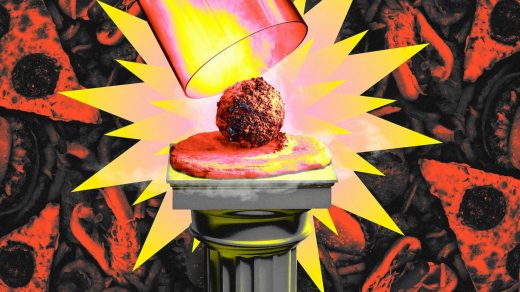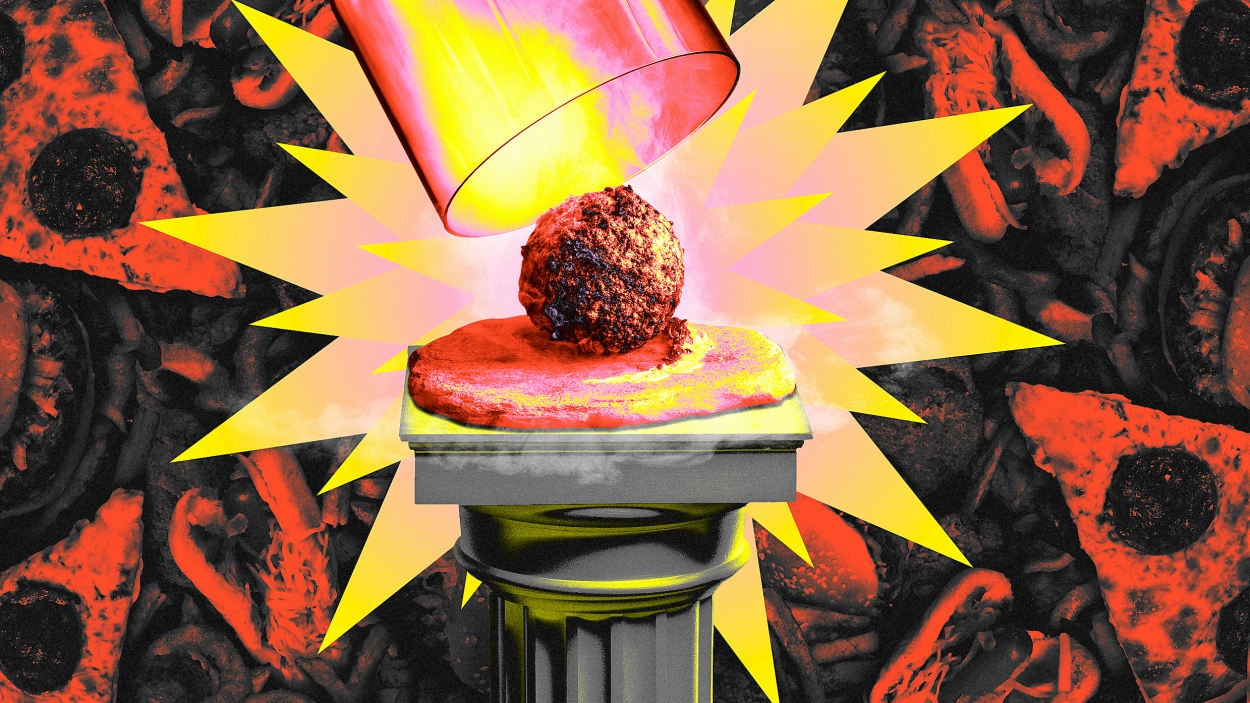Foodtech investors are making a mammoth mistake
By Larissa Zimberoff
When Mark Post made the first cell-cultured burger back in 2013, he hoped we might use it to talk about the reality of growing meat outside the body of an animal. In many respects, his gambit worked. The media covered it widely and investors began tracking it. Today, nearly $3 billion has been invested in more than 150 startups according to the Good Food Institute, trying to develop what’s now known as cultivated meat.
Ten years post-Post, one of those startups, Vow, flexed its scientific muscle by growing a mammoth-sized woolly mammoth meatball. That it was only somewhat genetically like the ancient mammal was not as important as what we were now supposed to talk about: that tech has no limits in what it can recreate.
The media went bananas covering it. Headlines read like jokes. Even The Atlantic referred to it as an “all-time great stunt.” Like Post, the cofounder of Vow wanted this to be a “conversation starter” of what our future might portend. Is it the lab or the land?
But this argument faded to the background because of what we were looking at: unfamiliar meat cooked with a blowtorch. Do we care that some said it smelled like crocodile meat?
In any event, we’re having the wrong conversation.
Our food system has come very far. Such societal complexities as animal welfare, environmental impact, and human health are becoming less foreign in everyday discourse. But while sustainability is a founder buzzword, it’s technology that lures investors. They don’t invest in ways to end industrial animal agriculture or methods to ensure the human condition improves. They invest in startups that get press for making a single mammoth Mammoth meatball that no one can eat.
“I think there’s quite a bit of noise,” says Lucas Mann, managing partner at Acre Venture Partners, which led fungi startup Meati’s Series A fundraising. “The reality doesn’t match the hype cycle, and that’s an important trap to avoid.” At Acre, Mann and his team—including former White House chef Sam Kass and David Chang—fund startups that are solving problems that exist today.
The real crisis we face is that our current food system is full of junk. Food is making us sick, but investor dollars are determining what may—or may not—make it to our plate. Their backing could help fund startups that discover ways to make convenient foods that are delicious and improve our health. Instead, they fund startups that spend four years growing animal cells in a lab. Last I checked, eating exotic animals isn’t part of an accessible, affordable diet, yet Vow, the Australian startup, has raised $56 million to date to grow them.
While tech startups wonder which extinct animal to resuscitate or which breed of wagyu cattle to biopsy cells from, our chronic conditions are on the rise. More than two-thirds of all deaths are caused by one or more of these five chronic diseases: heart disease, cancer, stroke, chronic obstructive pulmonary disease, and diabetes. Roughly 60% of Americans have at least one from this list, and 43% have more than one. (I have type-1 diabetes, so that’s mine.) According to the Centers for Disease Control, chronic diseases account for nearly 75% of healthcare spending.
The majority of our food is packaged and processed. Eat it every day and you will get sick. Consumers want to make a healthier choice, but how can anyone be expected to avoid junk food when it’s cheap and plentiful?
Let’s talk about kids. There’s been a substantial rise in the incidence of type 2 diabetes in adolescents—a chronic condition linked closely to diet. On the list of their risk factors are eating red meat and drinking sugar-sweetened beverages. I know that it can be a slog to read through these stats. (It can be even wearier to be the one typing them.)
Our foods need to change, but lab-grown meat of any kind won’t deliver us to a better place. Investors are mistaken with their interests. Even Bill Gates, who says we need to eat synthetic meat, has it wrong.
We need to eat the boring stuff, or we need to invest in creative founders who want to tackle re-inventing junk food brick by brick, molecule by molecule into products that are healthier than what’s on the shelves now. Make me a bag of chips that improves my health when I eat it. (Until then, I’ll avoid them.)
Back in 2013, Post’s burger was eaten by a handful of lucky tasters. This past March, Vow’s Mammoth meatball was showcased in a display case at the NEMO Science Museum in Amsterdam. It can’t be eaten, because scientists weren’t certain how a human today would react to Vow’s product. How much did we waste on making this meatball? No one knows, but we may be on our way to extinction if we continue blowing money on these distractions.
(15)



